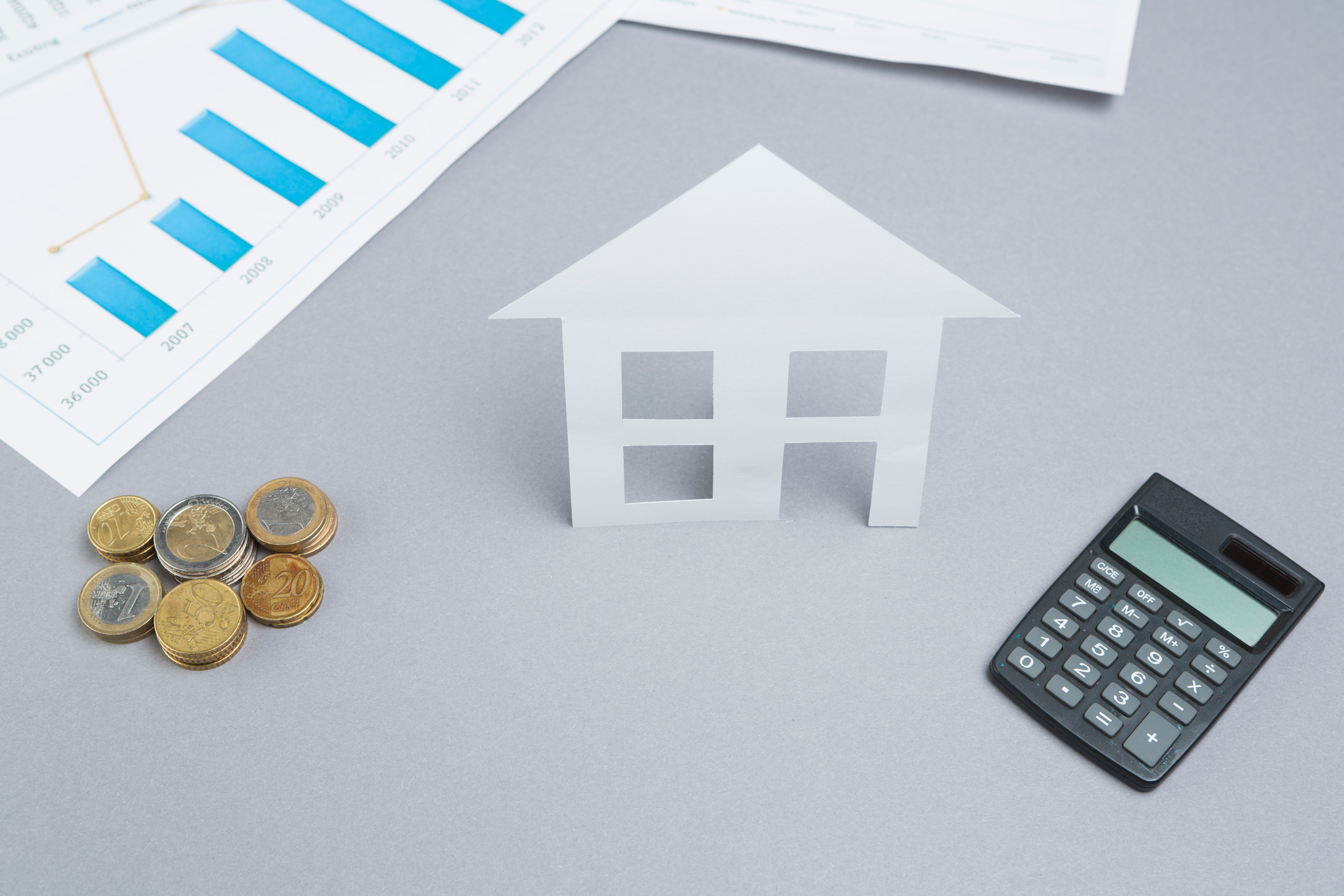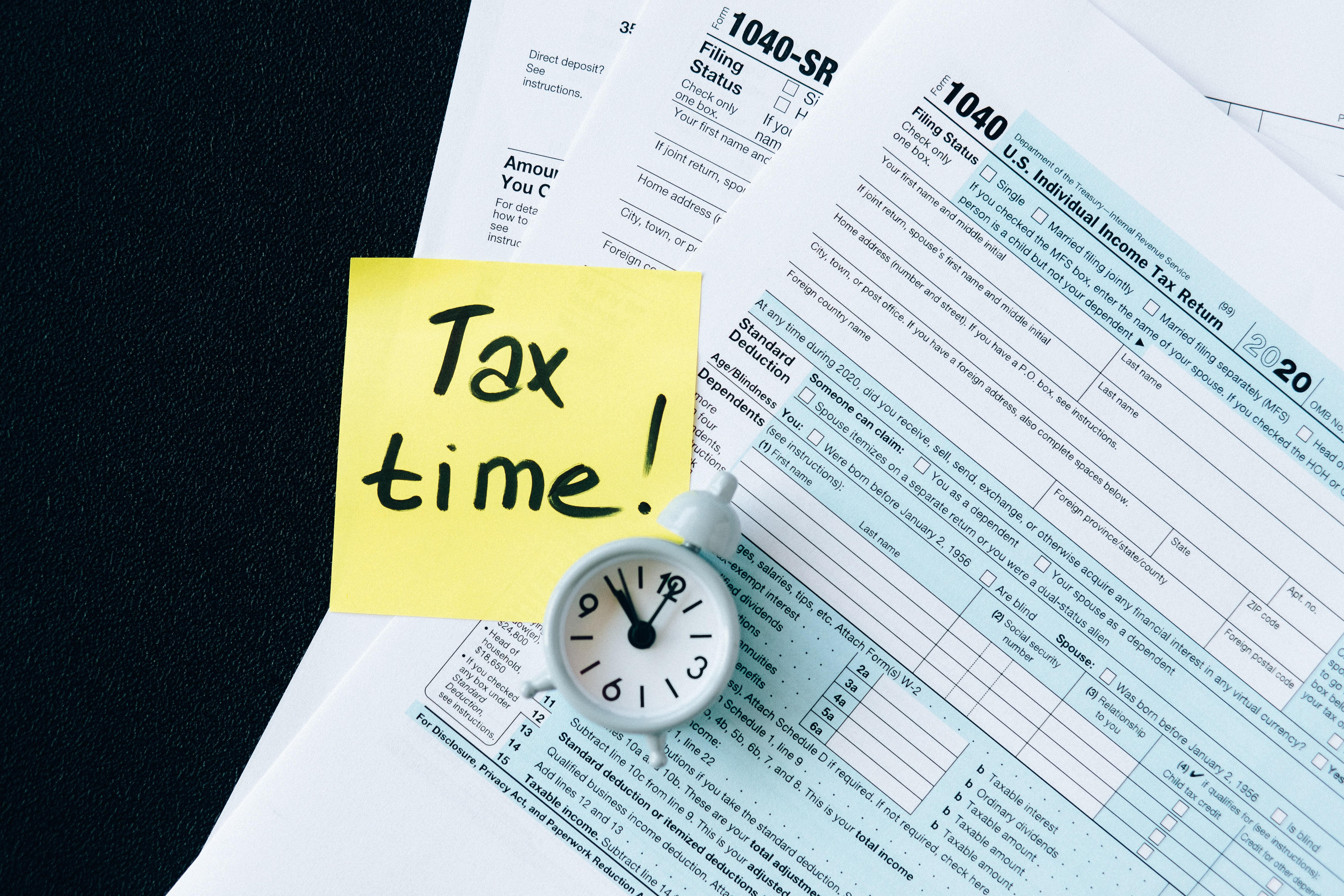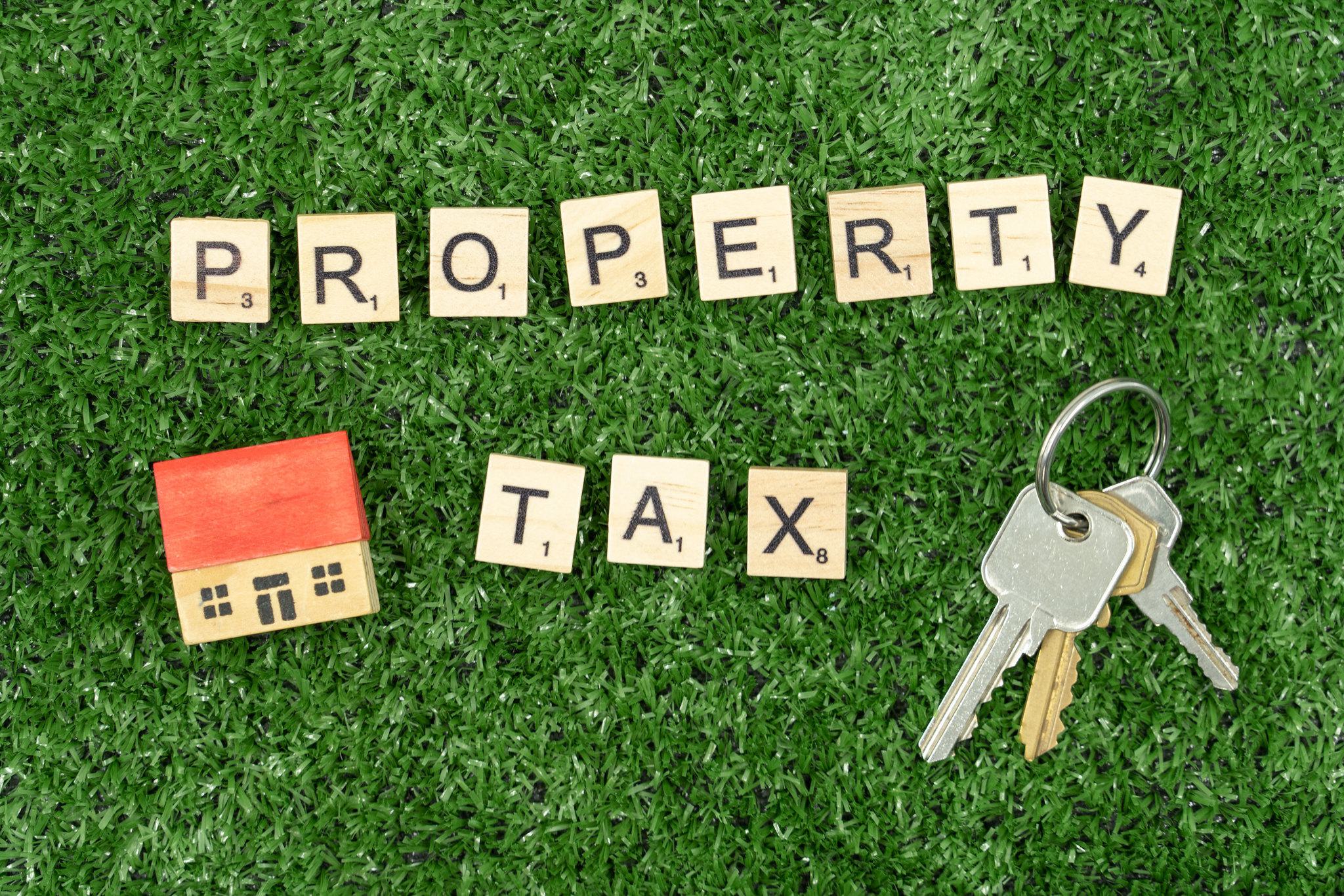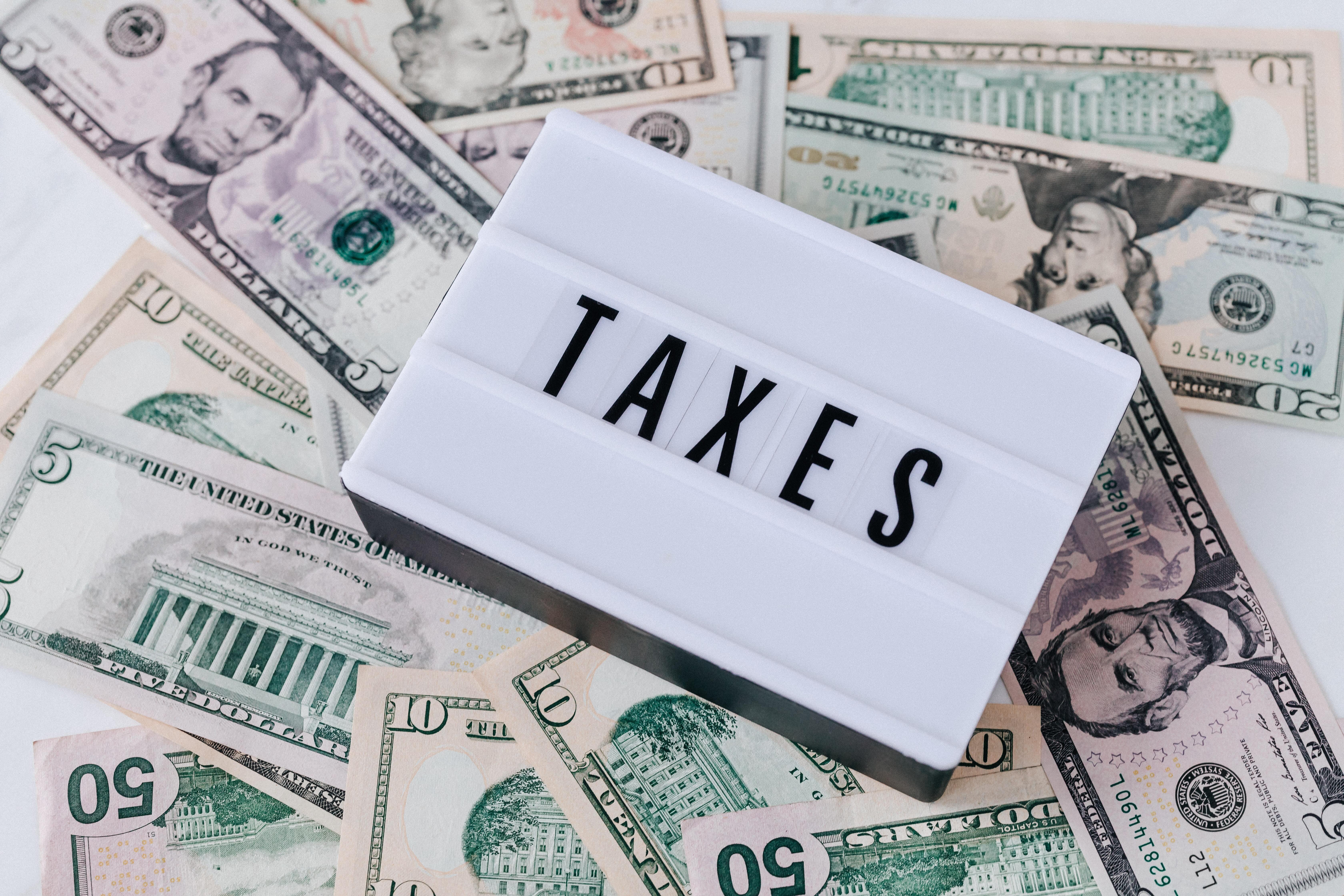Finance Forward Blog
What Happens If You Don't Pay Property Tax

As a homeowner, it's important to be aware of your responsibility to pay property taxes. But what happens if you don't pay?
If you own property, it's important to understand the consequences of not paying your property taxes. While some people may think they can get away with not paying, the reality is that there can be significant penalties for doing so.
While the consequences vary by state, not paying your property taxes can ultimately lead to the loss of your home.
In this blog post, we'll explore the different implications of not paying property taxes and what you can do to avoid losing your home.

What Are Property Taxes?
Property tax is a form of taxation aimed at local property owners. This tax is based on the assessed value of the property and is typically paid yearly to the local government. The property tax revenue helps support vital public services such as schools, libraries, police and fire departments, parks, roads, and many other services that benefit property owners as well as their communities.
It's important for property owners to stay on top of their property taxes every year as failure to pay or not paying in full can result in fines, penalties, and even property seizures.
The Government Can Place a Lien on Your Home
Property taxes are a crucial source of government revenue, so if property taxes go unpaid, the government will take immediate action.
When property taxes become delinquent, a property tax lien will be placed on the property for failure to pay property taxes. At this point, your property is subject to a tax sale.
The property tax liens prevent the property from being sold without satisfying the outstanding debts from unpaid property taxes. Penalties and interest may accumulate on such delinquent taxes over time and the associated costs can be substantial.
Thus, it’s important to stay alert about when property taxes are due and to pay them on time – otherwise, you may face serious consequences concerning your property’s ownership status and your personal finances.
Tax Lien on Your Property
Property tax liens put most homeowners in a difficult situation, as you are required to pay the delinquent amount to the taxing authority who placed the lien. While this can cause financial hardship, property owners need to pay up as soon as possible.
In some cases, your lender may pay these amounts through an escrow account and add them to your next mortgage payment.
Paying your back taxes on time not only helps you keep ownership of your property but also protects you from accumulating interest and penalties over time.

Your Credit Score Could Be Affected
Knowing and understanding your credit score can be daunting, especially when it comes to something like paying delinquent property taxes. Depending on how far overdue the taxes are, your residential property could enter the foreclosure process and eventually go through tax sale procedures, held by the county tax collector.
If pay taxes are more than one year delinquent in most states, things can get more complicated and potentially cause a lower credit score. To ensure this does not happen, pay the property taxes as soon as possible and contact the tax collector to confirm payment was made.
Alternatively, if you find yourself in a situation where you have delinquent pay taxes that require a tax auction, seek professional advice as common methods of handling these situations may affect your credit score.
You Won't Be Able to Sell or Refinance Your Home Until the Tax Debt Is Paid
When property taxes go unpaid, a tax lien is placed on the property in question. If the delinquent property taxes are not paid, the property may go up for a tax sale and the property tax liens could result in a delinquent property being sold at a tax sale to pay off the taxes owed.
As an owner of a property with unpaid property taxes, it is important to keep current and pay your property taxes to avoid penalties, such as collections efforts and/or forfeiture of your property via a tax deed sale.
To stop such undesirable occurrences from happening altogether, paying any overdue or delinquent property taxes is essential to prevent unnecessary headaches.
You Could End Up Owing Interest and Penalties
If delinquent taxes remain unpaid, a tax deed sale can occur and ownership of the property may transfer to the taxing authority.
The property owner will then be required to pay the delinquent taxes plus interest, penalties, legal fees, and other costs before reclaiming ownership during the redemption period.
If it is not reclaimed, a tax deed sale to a third party will follow the completion of the tax sale process. In some states, taxes that remain delinquent will eventually result in tax foreclosure with no opportunity for redemption.

Keep Up With Monthly Payments
To prevent indexing and confiscation of delinquent taxes, it is essential to keep up with monthly payments according to tax bills sent by the taxing authority.
Paying property taxes in full before the due date or within any other grace period given by the taxing authority is even more important if title ownership is at stake within a specified timeframe.
Business days should be considered if a payment needs to be made on or before a certain day; otherwise, it could be too late and you could end up owing interest and penalties on delinquent taxes if they are not paid in time.
The Government May Take Legal Action Against You - Wage Garnishment or Seizure of Assets
If the tax-delinquent property is left unpaid, the government may take legal action to enforce tax collection. This includes filing a tax lien against the property and holding tax sale auctions to recapture unpaid property taxes.
The tax lien attaches itself to the title of a residential property if the delinquent tax bill is not fully paid by a certain date and allows local governments to sell tax lien certificates at tax sales.
Once the county records indicate that a tax lien has been placed on a property, any mortgage lender will require that all delinquent property taxes be paid along with mortgage payments in order for homeowners to keep their homes.
Taxpayers need to know their tax obligations and adhere to deadlines in order to avoid having the government take legal action which could result in wage garnishment or seizure of assets.
The Government Could Foreclose Your Home
If delinquent taxes remain unpaid, delinquent tax property notices are issued and a tax deed can be sold to collect delinquent taxes owed to the taxing authority.
Property Tax Solutions offers redemption periods that allow you to pay the property taxes over time and avoid a tax sale process and subsequent tax deed sale. To begin the redemption process, one must monthly payment equal to or greater than the delinquent amount stated in the delinquent notice.
This applies a business day prior to the scheduled date of sale for delinquent, unpaid taxes found on your property tax bill.
Unpaid delinquent taxes can result in tax foreclosure, as well as interest accrued at an escalating rate and penalties for late payments due to each state's ordinances governing delinquent taxes.
Make sure you pay your taxes on time or face potentially serious consequences such as those outlined above.

To Maintain the Value of Your Home
Property tax is an important part of the tax system and the government relies on tax payments to keep services running.
Paying your property taxes is one of the key responsibilities homeowners have, as local law requires tax collection from all residential properties that a taxing authority deems taxable by state law.
Failure to pay could result in tax deed sales; however, when tax payments are made regularly, taxing authorities simply execute their duties for collection. The amount owed for tax payments is based on the assessed value of the property; if desired, individuals can open and maintain an escrow account for their taxes so that they do not forget or get behind.
When tax sales do happen, certain guidelines need to be followed and understood so that transactions may be cleared legally and other liens avoided.
It is essential to understand how tax sales work and how paying taxes on time will help ensure you maintain the value of your home according to local law.
In Some Cases, Failure to Pay Property Taxes Can Even Lead to Jail Time
Property tax payments are an important part of homeownership. When tax payments become delinquent, they can have serious and long-lasting repercussions for property owners.
Homeowners who fail to pay their property taxes could eventually face property tax sales, tax lien certificate sales, and even jail time in the worst cases.
To avoid tax delinquency, it is wise to have a plan for making timely tax payments, such as setting up monthly payments or considering homeowners insurance or other forms of tax certificates.
By taking proactive steps to pay your property taxes on time, you can ensure that you do not face any tax delinquency when these bills come due each month.

Avoid These Serious Consequences
Paying your property taxes on time is essential for homeowners and business owners alike, as even one late payment can have serious repercussions. Delinquent amounts are subject to interest and in some cases, the taxing authority may hold a tax lien certificate sale or public auction.
In these situations, an unpaid balance can be sold to the highest bidder if the redemption period expires without payback of the delinquent property taxes.
It's important to know that, regardless of where you live, most properties are eligible for a redemption period lasting anywhere from six months to three years, depending on the residential or commercial nature of the property.
Therefore, it's paramount that any unpaid tax amount is paid within this set timeline to avoid further consequences - this includes weekends and legal holidays since they are all considered business days when it comes to paying delinquent property taxes.
Conclusion
If you're behind on your property taxes, it's important to catch up as soon as possible to avoid serious consequences.
The government may take legal action against you, which could result in wage garnishment or seizure of assets. In some cases, failure to pay property taxes can even lead to jail time.
Whether you need help with your property tax, taxes, accounting, bookkeeping, or payroll, or need a CFO, our team provides all those services and more to be able to allow you to run your business, and not have to worry about those things. Give us a call!

